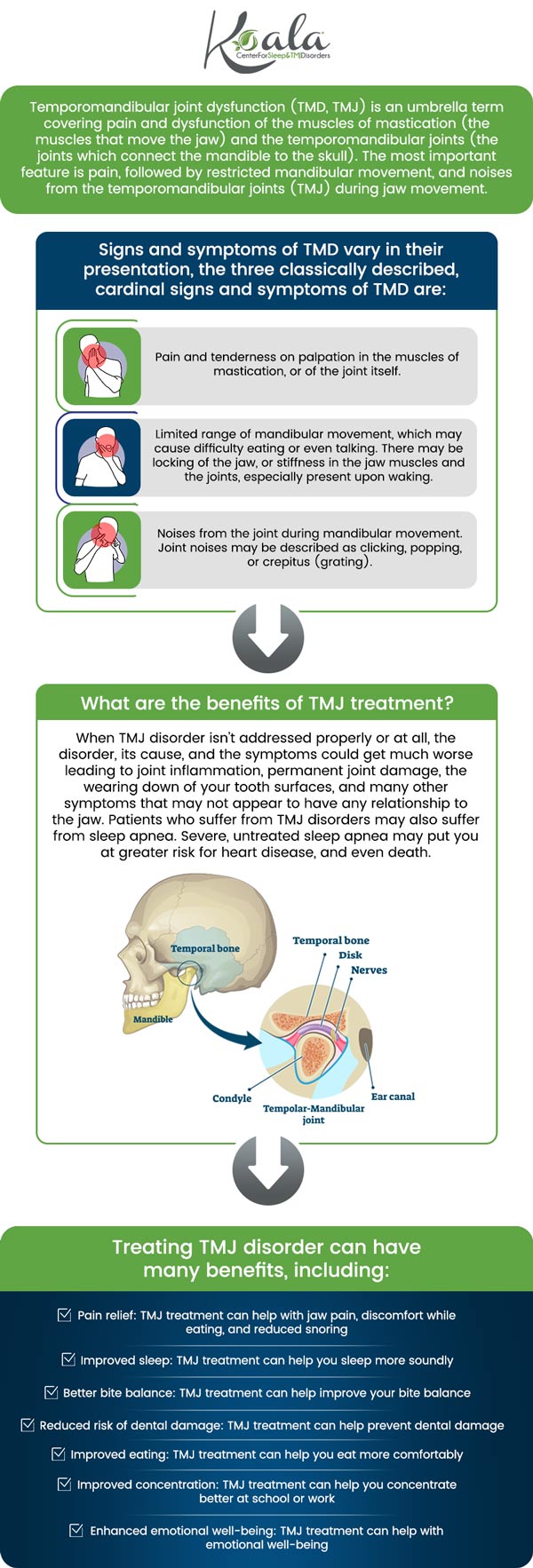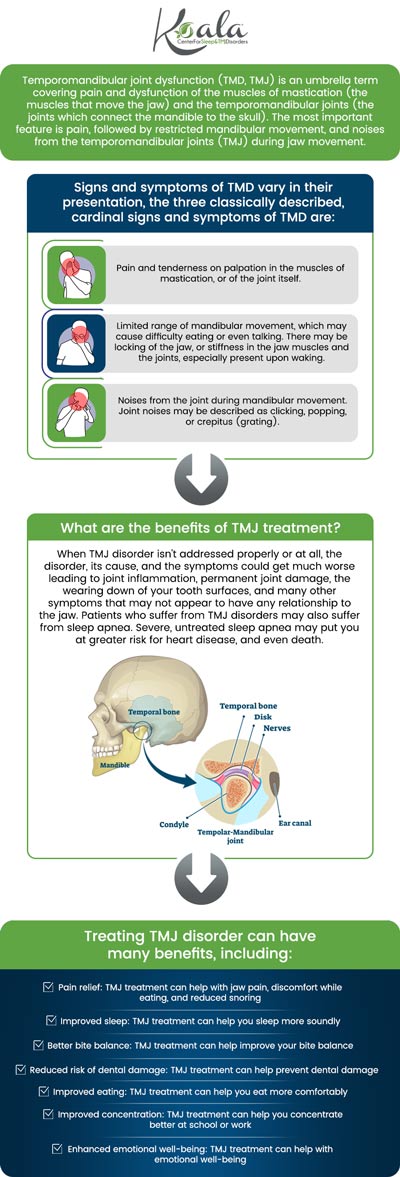Who Is Most Likely to Get TMJ?
People of all ages and genders can have TMJ issues. But women are impacted by it about twice as much as men are. Individuals with a history of facial or jaw trauma are at an increased risk of developing TMJ disorders in the future. If you or any of your loved ones are suffering from TMJ, come to the Koala Center for Sleep & TMJ Disorders and see our professionals. For more information contact us or book an appointment online. We have convenient locations across the U.S. in Bloomington IL, Peoria/Dunlap IL, El Paso TX, and Wausau WI.




Table of Contents:
Who is more prone to TMJ?
Why is TMJ more common in girls?
What is the most common age for TMJ?
TMJ concerns can affect people of all genders and age groups. However, this type of issue affects women around twice as much as it affects men. Specifically, women who use supplemental estrogen or oral contraceptives are even more likely to experience problems with this joint.
In addition, people who have experienced trauma or microtrauma to the jaw or face are more likely to develop TMJ conditions in the future. Posture can also play a role in the development of TMJ disorders, as it can result in strain on the neck and abnormal jaw function.
Furthermore, individuals who are under chronic stress and anxiety are more likely to develop TMJ disorders. The same goes for people with bruxism, which is a condition in which a person grinds their teeth and clenches their jaw while sleeping. As stress and anxiety are common causes of bruxism, they are also linked to TMJ problems.
People who are diagnosed with fibromyalgia are also more likely to experience concerns with their TMJ. In addition, those with vitamin deficiencies are prone to TMJ disorders, especially in cases of vitamin D, magnesium, or phosphorus deficiencies. As pregnant women often face stress, they also experience vitamin deficiencies and are subsequently more likely to develop TMJ problems.
Overall, while the causes of TMJ disorders are widespread, some people are more prone to developing these kinds of concerns because they have various risk factors. If you notice symptoms of TMJ disorder in yourself or your child, it’s important to receive a thorough evaluation from a specialist to determine the root cause of the problem.
Women are more prone to developing a TMJ disorder than men for several reasons. The main reason is the hormonal fluctuations that women experience. This is why TMJ disorders are commonly diagnosed in women during their childbearing years. In addition, women are also diagnosed with TMJ disorders during other hormonal fluctuations, such as during menopause or puberty. Hormones, such as estrogen, affect ligament laxity, and changes in their levels can irritate joints.
Furthermore, anatomical differences between men and women are another reason why women are more prone to TMJ disorders. As women generally have a more delicate jaw structure, they are more prone to dysfunction in the jaw joint. On the other hand, men tend to have longer, thicker, and wider upper jaw bones, making them less prone to TMJ issues.
Women who have anxiety, are under chronic stress, or experience bruxism are most likely to have problems with their jaw joints. It’s important to practice stress-management techniques to reduce your risk of TMJ issues.
The most common age to be diagnosed with TMJ conditions is between 20 and 40 years old; however, people can develop problems with their jaw joints at any age. Between 5 and 12% of adults have a TMJ condition.
Between the ages of 20 and 40, adults often experience significant life changes that can bring about higher levels of stress and anxiety. Stress-induced habits, which often develop due to the demands of work, school, and personal lives, include the clenching of the jaw and the grinding of the teeth. These habits make adults the most likely group to develop concerns about their jaw joints.
Adults who have poor posture, excessively chew gum, or use estrogen supplements or contraceptives are at increased risk of developing TMJ conditions. Furthermore, trauma to the jaw or face also increases the risk. Overall, there are several reasons why adults in this age range are the most likely group to receive a TMJ disorder diagnosis. If you have concerns with your jaw joint, such as difficulty opening or closing the mouth or a popping or clicking noise from the jaw, the experts at the Koala Center for Sleep & TMJ Disorders can help you with a thorough evaluation and comprehensive care.

Additional Services You May Need
▸ KoalaKIDZzz®
▸ Sleep Apnea
▸ Snoring
▸ TMJ Disorder
▸ Fatigue
▸ Sleep Disorders
▸ Weight Loss
▸ CPAP Alternative
▸ Oral Appliances




